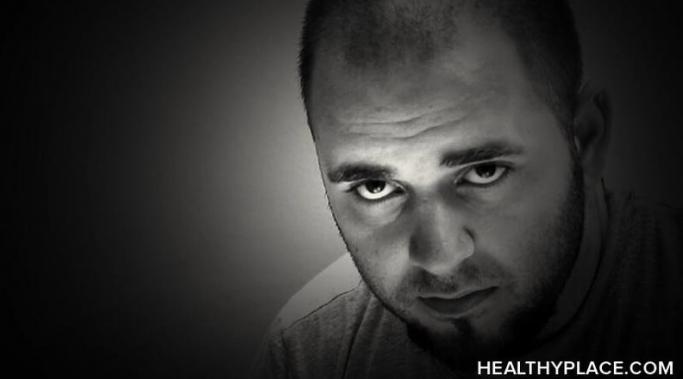How do you explain mental illness? How do you explain a brain disorder to a person who has no experience with psychiatric disorders? What can you say to make other people understand that mental illness is just that--an illness that affects the mind? Here are my tips on how to explain mental illness.
Recovering from Mental Illness
There are three lies rape victims believe, and these lies are common. One in six American women and one in 33 American men will be sexually assaulted at some point in their lives, according to the Rape, Abuse and Incest National Network (RAINN). That's just the ones who reported the rape, and RAINN estimates that 68 percent of rapes go unreported. I've heard that if you factor in unreported rapes, it's one in four American women and one in 10 American men. This raises the questions "Why not report it?" The simple answer is usually one of three lies that rape victims believe.
Should medical marijuana be legal for the treatment of posttraumatic stress disorder (PTSD)? I recently got a petition from a veteran with PTSD. After developing the disorder as a result of military service, he was prescribed several psychiatric medications. None of the "dozens" worked, and he eventually attempted to overdose. Desperate, he turned to medical marijuana--and found it helped. Is it time to allow medical marijuana as a treatment for PTSD?
Taking a moral inventory when you have borderline personality disorder (BPD) can be daunting. Step four of Alcoholics Anonymous (AA) is "a searching and fearless moral inventory." This can be terrifying and difficult for a person with a co-occurring diagnosis of substance abuse and BPD. How do I overcome my black-and-white thinking and see myself as a person with character strengths and weaknesses? How do I remember that I'm a sick person who has made bad choices and not a fundamentally bad person? How do I, as a person with BPD, take a fearless moral inventory?
Martial arts and mental illness are an excellent therapeutic combination. The martial arts can help with mental illness symptoms by redirecting aggression, teaching confidence, and helping an individual set boundaries and sticking to them. Mental illness and martial arts are an interesting therapy.
There are so many myths about mental illness and violence. In fact, part of the stigma of mental illness is due to fears of violence. I wince every time someone with a psychiatric diagnosis commits a crime because it reinforces this stigma and teaches people to be afraid because they believe there is a link between mental illness and violence. But a study by Northwestern University found that most mental illnesses aren't predictors of violence.1 The only exception is a substance abuse disorder. So how do we shatter the myth that mental illness means a person will be violent?
Through my years of mental illness treatment, I've identified three things that everyone with a mental illness should know. I was diagnosed with a mental illness the summer after my freshman year of college. I was relieved to finally know what was happening to me and felt considerably better once I started medication. But I had many questions, and few answers. And I would encounter many confusing things on my journey toward mental health, ranging from stigma to what the best course of treatment was. Along the way, I learned three things that everyone with a mental health diagnosis should know.
There are lies about psychiatric medications. Psychiatric medications are controversial due to the stigma of mental illness. I remember a college friend of mine told me she didn't trust anything that altered the emotions, even though she admitted the medications had made a positive difference in my life. It doesn't help that there is a lot of misinformation about psychiatric medications. Here are three lies people believe about psychiatric medications.
There are many good quotes and conversations about the stigma attached to mental illness. We owe it to ourselves to listen to and discuss these quotes as an effort to acknowledge the mental illness stigma. Fighting stigma is one of the steps to recovery from mental illness. So here are three quotes, and some possible discussions to have about mental illness stigma.
Just like there is stigma around mental illness, there is also stigma when it comes to mental illness treatment center locations. Several years ago, an Indianapolis hospital closed, leaving a large vacant building. A drug and alcohol treatment center wanted to move into the abandoned hospital. The problem--said building was a few blocks away from the Indianapolis Children's Museum. During the public hearings on the proposal, the Children's Museum vigorously denounced the idea, citing concern for the children. The building remains empty. Was the outcry necessary or was it an example of mental illness treatment center location stigma?









